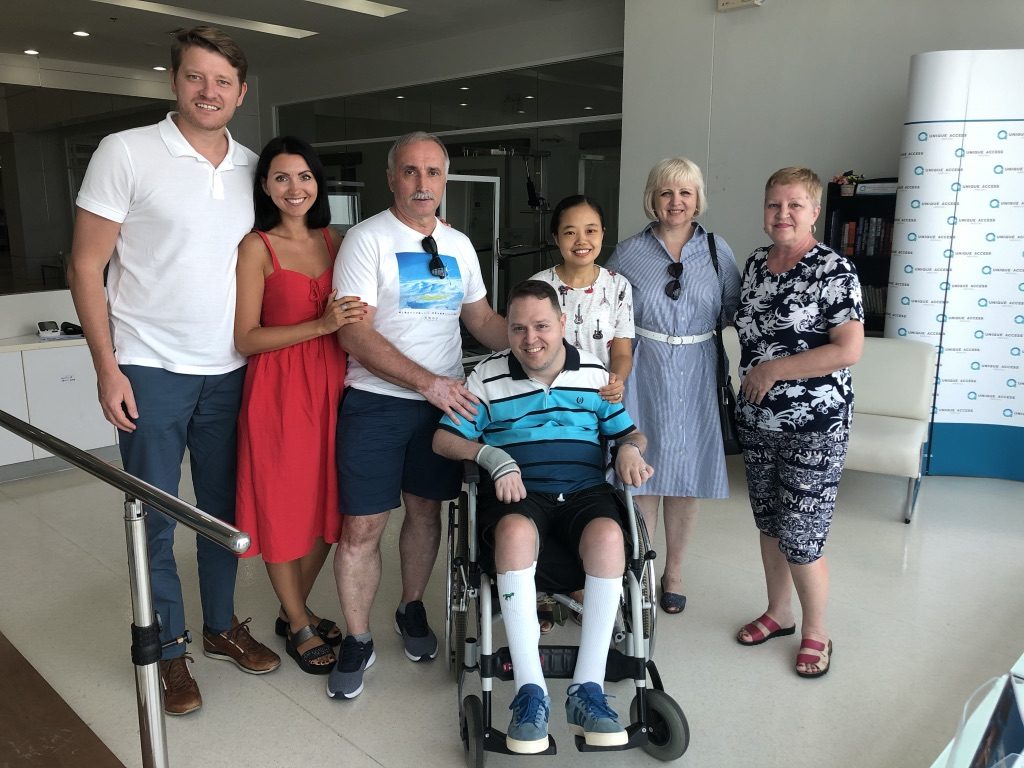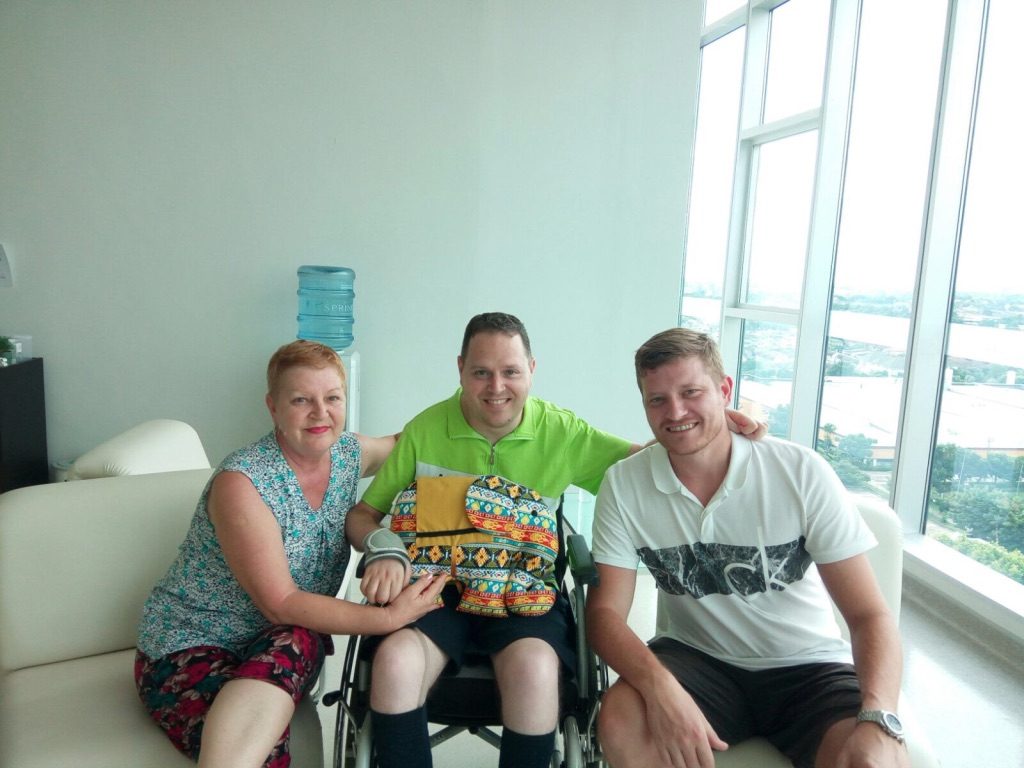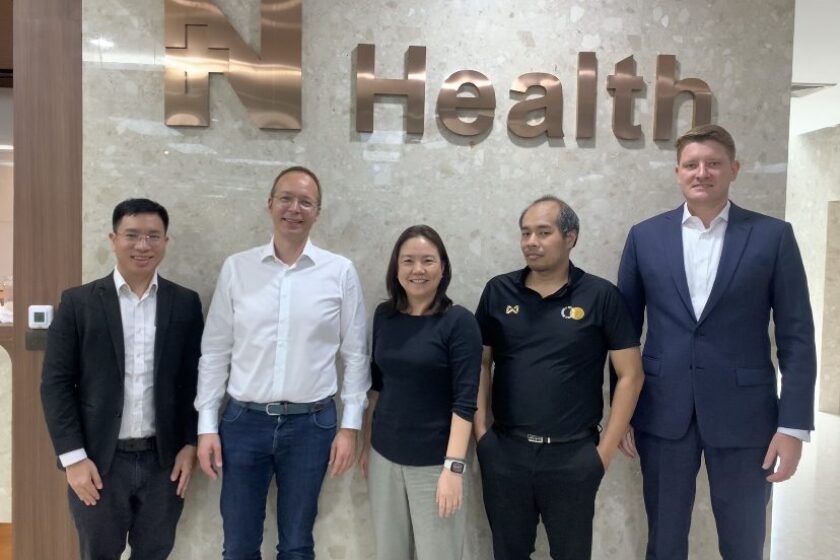ImagineHealth’s raison dêtre: The inspiring story of our dear friend Gabi
It would be easy for us to tell you that we got into medicine for altruistic reasons because, like with most doctors, nurses, scientists, and healthcare entrepreneurs, it is what’s expected.
It is also true. ImagineHealth’s motivating principle is to make high-quality healthcare more accessible to patients around the world. But our reason for doing it runs deeper than the mere desire to help others.
Each and every day, we strive to achieve our purpose in a way that honors the memory of a remarkable human being — a man named Gabi, who was the living embodiment of the expression, “Where there’s a will, there’s a way.”
My name is Henning Kalwa. I am the Founder and CEO of ImagineHealth, but more importantly, I was a long-time acquaintance of Gabriel Iordache. At first Gabi was a patient, but he soon became a dear friend.
Over the years, I have met and mentored hundreds of patients. I’m talking about international medical travelers and family members who decide to get on a plane and fly far away from home in pursuit of better healthcare.
I love them all, because fundamentally they are people who never give up no matter what. They are dreamers of positive outcomes for themselves and trailblazers showing what’s possible to people in similar predicaments.
In many ways, I find them brave and heroic. And I can think of no braver hero than Gabi.
Gabi was an SCI patient (spinal cord injury) who had been surviving as a quadriplegic for over a decade when I met him in Qingdao, China. He was there as an international medical traveler visiting my biotech company for regenerative cell treatment aimed at reestablishing a connection between his brain and severed spinal cord.
His condition was caused by a diving accident at the age of fourteen, a particularly tragic event considering he was an avid and accomplished runner intent on entering a military university and becoming a soldier.
After that fateful day in the water, Gabi could control only his eye movements. He would never walk again, let alone run. He would never dress himself in an armed forces uniform, let alone serve his country. In the flash of a seemingly harmless splash, his life was rendered sedentary and he entered an endless routine of hospital visits for a cascade of physical ailments.
And yet, Gabi struck me as an extremely cheerful and optimistic man from the moment we met.
Aside from being the sort of person whose entrance can light up a room — that ray of sunshine radiating warmth, kindness, enthusiasm, and good humor — Gabi managed time and again to exceed expectations for SCI patients, particularly those with a paralyzing injury to their C5 vertebra.
Despite the most challenging of circumstances, Gabi simply got on with his life and kept busy living it. Not only did he completely shun self pity, he took self motivation and determination to new levels as he adapted to his new normal.
How does this sound for overcoming adversity? Gabi attended university, earned a Bachelor’s degree, became a successful patient representative in the healthcare industry, was financially independent, supported his elderly parents, met the love of his life, and got married.
It seems like a legendary Hollywood fairytale kind of fiction, but it’s real.
Gabi’s story doesn’t end with his positivity and tenacity, although it inspired countless others. And my involvement in his treatments didn’t end in China, although it inspired me to move on to bigger things.
In 2015, we came across a research paper published by the University of Louisville in the USA, describing a new surgery with the potential to vastly improve SCI patients’ quality of life. The study suggested that brain-to-spine connectivity could be restored by using an innovation known as Epidural Stimulation (neuromodulation).
My first thought was about how this could help my friend. My next thought was that I should facilitate that help for him by whatever means necessary.
To make a long story short, after countless discussions with neurologists and spine surgeons in Asia, Epidural Stimulation was made accessible in Thailand. Within five years, over 100 SCI patients showed improvements, some dramatically, with Gabi being one of them. He regained some sensation in his toes and was able to take steps with the assistance of a physical therapist.
What’s more, Gabi joined my team of medical travel facilitators, because in true Gabi fashion, he wanted to help others.
Unfortunately, Gabi wasn’t able to continue improving his health or contributing to my team for nearly as long as we hoped, because in 2020 his life was cut short after succumbing to an infectious disease.
This letter is my attempt at homage for a man who went from patient to friend to colleague, inspiring me and many others along the way. And it continues to this day.
ImagineHealth was a mere kernel of an idea at the time of Gabi’s passing, but it was in his memory that we pushed forward to become what we are at present:
We exist to empower dreamers and encourage trailblazers, to give them hope that new and innovative treatments are available when their home country’s conventional medicine fails them, to motivate them to overcome adversity, to help them exceed expectations, and to bring joy to their lives.
We want to be like Gabi. Imagine that.







